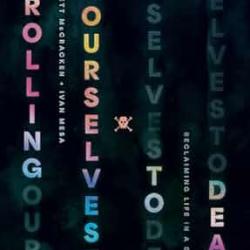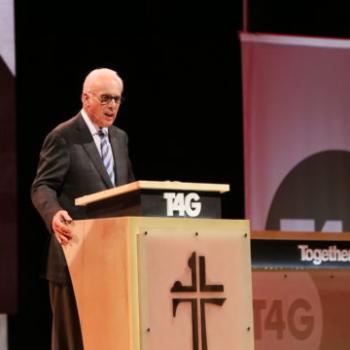Review of Who Do You Think You Are? By Mark Driscoll
By COYLE NEAL
Mark Driscoll may not know it (or heck, maybe he does), but when he wrote a book about searching for personal identity he stepped directly into one of the fundamental philosophical questions of the 20th century: who am I? When philosophers pitch this question, “identity” is usually paired with some form of the word “authenticity.” The idea is that we should be searching for our identity not as society or culture has shaped it, but as it actually, authentically is when all external factors are stripped away. We should look deep down within ourselves to find out who we are most fundamentally by nature. Think this sounds easy? Not according to Heidegger, Marcuse, Camus, Sartre, or even the Christian response to these thinkers by Francis Schaeffer (to say nothing of the legion of other philosophers who have tackled this issue).
Mark Driscoll’s contribution to this discussion comes not from a philosophical perspective, but rather from an exegetical one. Who do you think you are? Is an exposition of the book of Ephesians that engages the question of personal identity. In the first chapter, he lays out the crisis of identity that the modern world seems to be going through. Because we don’t know who we are, we try to find our identity in “all the wrong places”, including in Items, Duties, Others, Longings, and Sufferings. (Equaling IDOLS—the requisite pastoral acronym, pgs 3-14.) In other words, at the end of the day we are fundamentally and authentically defining ourselves by our sin. When we do what the modern philosophers tell us to do and examine our own hearts and minds, what we find is that the person who should have been an image-bearer of the God who made him has become an image-bearer of anything and everything else.
In contrast to this sinful self-definition stands being identified “in Christ.” This is the overarching theme of both Driscoll’s book and the book of Ephesians—we can only know who we really are, who we authentically are, when we find our basic identity in Christ:
The two words “in Christ” changed the world and are the summary, essence, and totality of a believer’s identity. Simply put, either our identity is in Christ or in idolatry. (24)
The second chapter walks through the phrase “in Christ,” emphasizing that as Christians our fundamental identity is not, as most of the philosophers listed above would have it, something we find by examining ourselves closely. Instead, it is a gift given to us by God through Jesus Christ:
The absolute worst place to begin constructing an identity is you, which is precisely where most counseling begins. The absolute best place to begin constructing an identity is Jesus Christ, which is precisely where Scripture begins. Knowing Jesus and being saved by him in faith is the key to your identity and the defeat of your idolatry. It’s not about you. It’s all about Jesus. (17)
The rest of the book exposits how our identity in Christ is explored in the book of Ephesians. In each chapter, Driscoll cites a section of Ephesians, and then explains that in Christ “I am”: a Saint, Blessed, Appreciated, Saved, Reconciled, Afflicted, Heard, Gifted, New, Forgiven, Adopted, Loved, Rewarded, and Victorious. Each of these is an aspect of our new identity in Christ, and should stand in contrast to the worldly identity through sin and idolatry.
In his in-your-face (yet somehow still Godly) style, Driscoll has given us a wonderful book that both clearly exposits Scripture and helps us apply Biblical truths to our lives. He challenges us to remember that in Christ we are new people with a new identity that begins in forgiveness, ends in holiness, and cannot be overcome by our sinful past or the temptations to idolatry around us. Unlike the claims of most modern philosophers, we should not look deep within ourselves to find meaning and “authenticity,” rather we should look to the God who made us and the Savior who bought us with His own blood on the cross.
Highly recommended for anyone who struggles with identity issues or the temptation to find meaning other places than in Christ—which of course is all of us.
Dr. Coyle Neal teaches Political Philosophy and Church History in Washington, DC.












